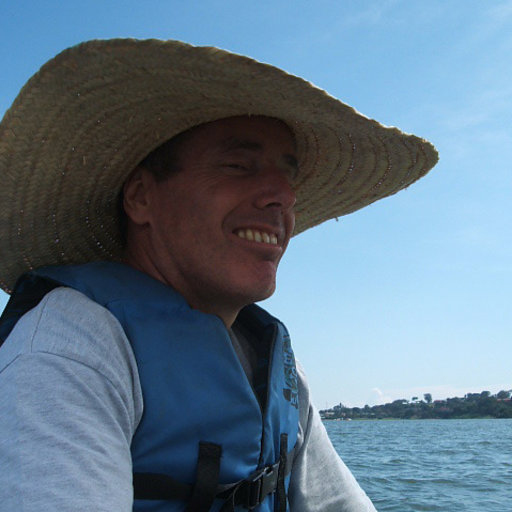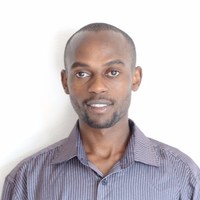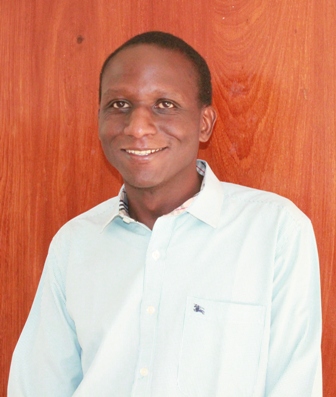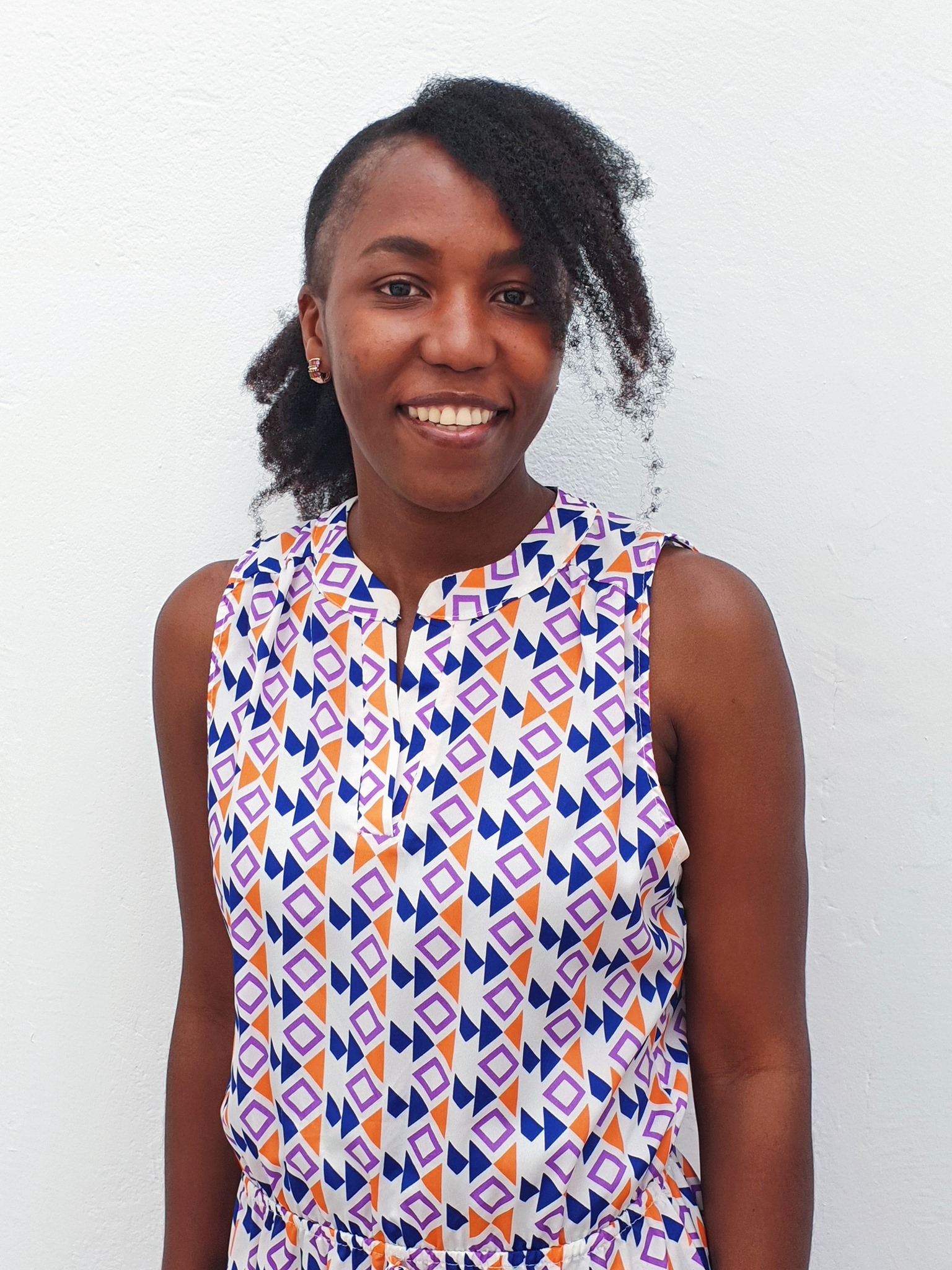
IBS Tanzania Workshop
August 01-05, 2022
Statistical Learning Using R. MITU, Mwanza
Statistical Learning Using R. MITU, Mwanza
| Home | Application | Program | Facilitators | Directions | Download |
 Jim Todd is a Professor of Applied Biostatistics at London School of Hygiene & Tropical Medicine (UK), Senior Technical Advisor,
TAZAMA Project, NIMR, Mwanza, and works with several other institutions in Africa. He is the Hon. Senior Lecturer at CUHAS, Mwanza, Tanzania. His research
interests have focused on several projects that aimed to analyse routinely collected health data. He served as a member of the editorial board of Parasite
Immunology, and Tropical Medicine and International Health and a guest editor for Frontiers in Public Health. He is currently a Secretary-Treasurer of the
International Biometric Society (IBS) Tanzania Region. In 2018, he received the IBS Rob Kempton Award for his outstanding contributions to the development of
biometry in the developing world. He is a co-investigator on the Alpha network, which is funded by Wellcome Trust and the Gates Foundation. He is the PI for
the INSPIRE network, which will develop a network for supporting HDSS in East Africa. He has led a project funded by the Global Fund for AIDS, TB and Malaria,
which delivered ART in health centres, and monitored the impact on health outcomes. His research also involves the Sub-Saharan Africa Consortium for
Advanced Biostatistics (SSACAB).
Jim Todd is a Professor of Applied Biostatistics at London School of Hygiene & Tropical Medicine (UK), Senior Technical Advisor,
TAZAMA Project, NIMR, Mwanza, and works with several other institutions in Africa. He is the Hon. Senior Lecturer at CUHAS, Mwanza, Tanzania. His research
interests have focused on several projects that aimed to analyse routinely collected health data. He served as a member of the editorial board of Parasite
Immunology, and Tropical Medicine and International Health and a guest editor for Frontiers in Public Health. He is currently a Secretary-Treasurer of the
International Biometric Society (IBS) Tanzania Region. In 2018, he received the IBS Rob Kempton Award for his outstanding contributions to the development of
biometry in the developing world. He is a co-investigator on the Alpha network, which is funded by Wellcome Trust and the Gates Foundation. He is the PI for
the INSPIRE network, which will develop a network for supporting HDSS in East Africa. He has led a project funded by the Global Fund for AIDS, TB and Malaria,
which delivered ART in health centres, and monitored the impact on health outcomes. His research also involves the Sub-Saharan Africa Consortium for
Advanced Biostatistics (SSACAB).
|
 Leacky K. Muchene is a Principal Statistician at the Janssen (Johnson and Johnson) Infectious Diseases and Vaccines in the Netherlands
where he provides statistical support to the vaccines development teams. More recently, he was instrumental in the preclinical evaluation of the
Janssen Covid19 vaccine . He is proficient in the use of R statistical software in research and has
developed and maintains R Shiny applications that are extensively used by scientists. Prior to joining Janssen IDV, he worked on his Ph.D in Biostatistics
at Hasselt university, Belgium in collaboration with Janssen Research and Development, Belgium. The Ph.D research revolved around statistical modelling
in non-clinical pharmaceutical research particularly in the context of Alzheimer disease
(
Magnetic resonance imaging in neurodegeneration and neurodevelopment) and
Bayesian variable selection in dose-response modeling. More recent research interests and publications are in the
context of latent Dirichlet allocation methodology in text processing
with an aim in automating title and abstracts screening/cataloguing especially for systematic reviews.
Leacky K. Muchene is a Principal Statistician at the Janssen (Johnson and Johnson) Infectious Diseases and Vaccines in the Netherlands
where he provides statistical support to the vaccines development teams. More recently, he was instrumental in the preclinical evaluation of the
Janssen Covid19 vaccine . He is proficient in the use of R statistical software in research and has
developed and maintains R Shiny applications that are extensively used by scientists. Prior to joining Janssen IDV, he worked on his Ph.D in Biostatistics
at Hasselt university, Belgium in collaboration with Janssen Research and Development, Belgium. The Ph.D research revolved around statistical modelling
in non-clinical pharmaceutical research particularly in the context of Alzheimer disease
(
Magnetic resonance imaging in neurodegeneration and neurodevelopment) and
Bayesian variable selection in dose-response modeling. More recent research interests and publications are in the
context of latent Dirichlet allocation methodology in text processing
with an aim in automating title and abstracts screening/cataloguing especially for systematic reviews.
|
 Innocent B. Mboya is a Lecturer in epidemiology and applied biostatistics at the Institute of Public Health, Kilimanjaro Christian
Medical University College (KCMUCo), Moshi Tanzania. He holds a MSc in Epidemiology and Applied Biostatistics from KCMUCo and Ph.D in Statistics from
the University of Kwazulu-Natal, South Africa. He is a member and current president of the International Biometric Society (IBS), Tanzanian region.
He has about ten-year teaching experience in addition to coordinating and conducting community-based surveys related to the nutritional status of children
under five years of age, adolescent sexual and reproductive health, non-communicable diseases, and monitoring and evaluation of projects at local and national levels.
He is experienced in project management from designing, implementation, monitoring and evaluation. He possesses diverse data management and analysis skills using
STATA, SPSS, R, and RDSAT (for data analysis from key populations). His interest is in research and interventions to reduce the burden of adverse pregnancy outcomes,
particularly increasing child survival.
Innocent B. Mboya is a Lecturer in epidemiology and applied biostatistics at the Institute of Public Health, Kilimanjaro Christian
Medical University College (KCMUCo), Moshi Tanzania. He holds a MSc in Epidemiology and Applied Biostatistics from KCMUCo and Ph.D in Statistics from
the University of Kwazulu-Natal, South Africa. He is a member and current president of the International Biometric Society (IBS), Tanzanian region.
He has about ten-year teaching experience in addition to coordinating and conducting community-based surveys related to the nutritional status of children
under five years of age, adolescent sexual and reproductive health, non-communicable diseases, and monitoring and evaluation of projects at local and national levels.
He is experienced in project management from designing, implementation, monitoring and evaluation. He possesses diverse data management and analysis skills using
STATA, SPSS, R, and RDSAT (for data analysis from key populations). His interest is in research and interventions to reduce the burden of adverse pregnancy outcomes,
particularly increasing child survival.
|
 Jacqueline Materu is a doctoral candidate in Biostatistics at Catholic University Health And Allied Sciences (CUHAS), Tanzania.
Prior to joining CUHAS, she worked as a Biostatistician at the National Institute of Medical Research (NIMR), Mwanza, Tanzania and the
Institut national de la santé et de la recherche médicale (INSERM), U1219, IDLIC (Infectious Diseases in Low Income countries), Bordeaux, France.
She has been working as a statistical consultant and collaborated with health research institutions in Tanzania, Zambia and France.
She has spent part of her time on lecturing and training, research method and Biostatistics course for students (undergraduate and master level) and
research staff. Her interest is on the art of using statistics to solve problems. She has experience of analyzing health data focused on various
issues on adolescents and young population and also she contributed in writing and published manuscripts.
Jacqueline holds an MSc. in Statistics specialized in Biostatistics from Hasselt university, Belgium,
an MSc. in Public health Data Science from Bordeaux university, France and a BSc. in Applied statistics from Mzumbe University, Tanzania.
Jacqueline Materu is a doctoral candidate in Biostatistics at Catholic University Health And Allied Sciences (CUHAS), Tanzania.
Prior to joining CUHAS, she worked as a Biostatistician at the National Institute of Medical Research (NIMR), Mwanza, Tanzania and the
Institut national de la santé et de la recherche médicale (INSERM), U1219, IDLIC (Infectious Diseases in Low Income countries), Bordeaux, France.
She has been working as a statistical consultant and collaborated with health research institutions in Tanzania, Zambia and France.
She has spent part of her time on lecturing and training, research method and Biostatistics course for students (undergraduate and master level) and
research staff. Her interest is on the art of using statistics to solve problems. She has experience of analyzing health data focused on various
issues on adolescents and young population and also she contributed in writing and published manuscripts.
Jacqueline holds an MSc. in Statistics specialized in Biostatistics from Hasselt university, Belgium,
an MSc. in Public health Data Science from Bordeaux university, France and a BSc. in Applied statistics from Mzumbe University, Tanzania.
|
 Neema R. Mosha is working as a medical Statistician and a research associate within the Mwanza Intervention Trials Unit (MITU)
and the Institute for Medical Information Processing, Biometry and Epidemiology, Ludwig-Maximilians University, Munich-Germany.
She is a qualified Statistician and epidemiologist with over 10 years of experience teaching and conducting research, monitoring and evaluating
projects and programs. She has science degree in Statistics and Mathematics from the University of Dodoma (Tanzania),
a Master's degree in Epidemiology and applied Bio-statistics from KCMUCo (Tanzania) and PhD in Biostatistics from Stellenbosch University (South-Africa).
Neema has spent most of her time working with different statistical packages including STATA and R answering research objectives in a wide range of
topics such as HIV/AIDS and Sexual Transmitted infections. Non-Communicable Diseases, Gender violence, and women empowerment, Health Systems,
Clinical trials and currently Emerging Infectious Diseases. Her major interest is in the application of a wide range of statistical methods
in related health research/program to provide insights, recommendations, advice on policy change through the use of the evidence-based approach.
Further, she is keen to provide extensive support as a faculty member to the growing arena of epidemiology and biostatistics in sub-Saharan Africa.
Neema R. Mosha is working as a medical Statistician and a research associate within the Mwanza Intervention Trials Unit (MITU)
and the Institute for Medical Information Processing, Biometry and Epidemiology, Ludwig-Maximilians University, Munich-Germany.
She is a qualified Statistician and epidemiologist with over 10 years of experience teaching and conducting research, monitoring and evaluating
projects and programs. She has science degree in Statistics and Mathematics from the University of Dodoma (Tanzania),
a Master's degree in Epidemiology and applied Bio-statistics from KCMUCo (Tanzania) and PhD in Biostatistics from Stellenbosch University (South-Africa).
Neema has spent most of her time working with different statistical packages including STATA and R answering research objectives in a wide range of
topics such as HIV/AIDS and Sexual Transmitted infections. Non-Communicable Diseases, Gender violence, and women empowerment, Health Systems,
Clinical trials and currently Emerging Infectious Diseases. Her major interest is in the application of a wide range of statistical methods
in related health research/program to provide insights, recommendations, advice on policy change through the use of the evidence-based approach.
Further, she is keen to provide extensive support as a faculty member to the growing arena of epidemiology and biostatistics in sub-Saharan Africa.
|
 Philip Ayieko is an Assistant Professor of Medical Statistics and Epidemiology at London School of Hygiene and Tropical Medicine, and is
based fulltime in Mwanza. He has an interest in the design and analysis of clinical trials and has previously designed and analysed cluster randomized
trials on child health interventions. Prior to joining the School and the Mwanza Intervention Trials Unit, Philip worked at the Kenya Medical Research Institute-Wellcome Trust programme
since 2005 and his areas of work included systematic reviews in child health, costs of treatment for paediatric diseases and cost-effectiveness analysis
of vaccination, and quality of hospital care in paediatrics with a focus on pneumonia. Between 2013 and 2017, he served as the lead epidemiologist of the Kenyan clinical information network, a collaborative project between hospitals,
Ministry of Health, academic institutions and professional bodies that aims to use hospital data to improve quality of paediatric care.
Philip Ayieko is an Assistant Professor of Medical Statistics and Epidemiology at London School of Hygiene and Tropical Medicine, and is
based fulltime in Mwanza. He has an interest in the design and analysis of clinical trials and has previously designed and analysed cluster randomized
trials on child health interventions. Prior to joining the School and the Mwanza Intervention Trials Unit, Philip worked at the Kenya Medical Research Institute-Wellcome Trust programme
since 2005 and his areas of work included systematic reviews in child health, costs of treatment for paediatric diseases and cost-effectiveness analysis
of vaccination, and quality of hospital care in paediatrics with a focus on pneumonia. Between 2013 and 2017, he served as the lead epidemiologist of the Kenyan clinical information network, a collaborative project between hospitals,
Ministry of Health, academic institutions and professional bodies that aims to use hospital data to improve quality of paediatric care.
|
 Sophia A. Kagoye is working as a research scientist at the National Institute for Medical Research-Tanzania,
also a current PhD candidate at the Catholic University of Health and Allied Sciences (CUHAS) in Mwanza, Tanzania. Her Ph.D work focuses on the trends and
patterns of mortality from childhood to adolescence from 1994 to 2021, utilising Kisesa Health and Demographic surveillance data over time. Sophia has a background in Medicine, Epidemiology and Applied Biostatistics.
As a Research scientist, she has been involved in survey designing and implementation, analysis of survey data, analysis of routine health system data
(DHIS-2), and Health and Demographic surveillance data focusing on reproductive health, mother and child health, infectious diseases and non-communicable
diseases. She is also involved as a team member in the Tanzania Countdown to 2030, contributing to endline evaluations of Tanzania Health Strategic Plans
and tracking the progress towards improving Maternal and Child Health services and achieving SDG targets. Sophia also possesses diverse data management
and analytical skills using STATA, R, SPSS. She is particularly interested in applying statistical techniques to address health related problems.
Sophia A. Kagoye is working as a research scientist at the National Institute for Medical Research-Tanzania,
also a current PhD candidate at the Catholic University of Health and Allied Sciences (CUHAS) in Mwanza, Tanzania. Her Ph.D work focuses on the trends and
patterns of mortality from childhood to adolescence from 1994 to 2021, utilising Kisesa Health and Demographic surveillance data over time. Sophia has a background in Medicine, Epidemiology and Applied Biostatistics.
As a Research scientist, she has been involved in survey designing and implementation, analysis of survey data, analysis of routine health system data
(DHIS-2), and Health and Demographic surveillance data focusing on reproductive health, mother and child health, infectious diseases and non-communicable
diseases. She is also involved as a team member in the Tanzania Countdown to 2030, contributing to endline evaluations of Tanzania Health Strategic Plans
and tracking the progress towards improving Maternal and Child Health services and achieving SDG targets. Sophia also possesses diverse data management
and analytical skills using STATA, R, SPSS. She is particularly interested in applying statistical techniques to address health related problems.
|
 Wende Clarence Safari is a Statistician (recent PhD graduate from University of La Corúna, Spain). Her previous training was in Tanzania and
Belgium, where she did a bachelor degree in Applied Statistics at Mzumbe University (Tanzania) and a Master degree in (Bio)statistics at Hasselt University (Belgium).
Prior to her PhD, she worked with the National Institute for Medical Research (NIMR),
Mwanza in Tanzania. Later, she received a research grant from the HIV Research Trust, UK,
where she visited and worked at the Africa Health Research Institute (AHRI) in South Africa.
She has worked in several other medical and statistical research environments in Spain and has spent time in HIV and TB research working groups in Tanzania and South Africa,
respectively. She contributed and supervised many students from different backgrounds. Her research interests include but are not limited to: developing and applying complex
survival analysis models (cure models) to medical datasets, modelling missing data analysis methods, and regression modelling.
She can be contacted via email .
Wende Clarence Safari is a Statistician (recent PhD graduate from University of La Corúna, Spain). Her previous training was in Tanzania and
Belgium, where she did a bachelor degree in Applied Statistics at Mzumbe University (Tanzania) and a Master degree in (Bio)statistics at Hasselt University (Belgium).
Prior to her PhD, she worked with the National Institute for Medical Research (NIMR),
Mwanza in Tanzania. Later, she received a research grant from the HIV Research Trust, UK,
where she visited and worked at the Africa Health Research Institute (AHRI) in South Africa.
She has worked in several other medical and statistical research environments in Spain and has spent time in HIV and TB research working groups in Tanzania and South Africa,
respectively. She contributed and supervised many students from different backgrounds. Her research interests include but are not limited to: developing and applying complex
survival analysis models (cure models) to medical datasets, modelling missing data analysis methods, and regression modelling.
She can be contacted via email .
|